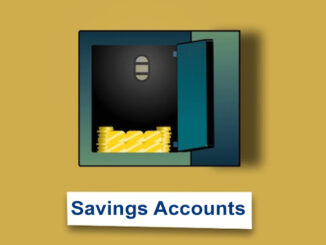There are several Pros and Cons regarding Certificate of Deposit accounts.

As you might know, a Certificate of Deposit (CD) is a financial product banks and credit unions offer, offering a fixed interest rate in exchange for leaving a deposit untouched for a specified period. While a CD can be an excellent tool for saving money, it's essential to understand its benefits and drawbacks to decide whether it's right for your financial goals.
The Pros of CDs
1. Higher Interest Rates:
CDs typically offer higher interest rates than standard savings accounts. This higher return is a reward for committing your money to the bank for a fixed period, allowing you to earn more on your savings.
2. Fixed Return:
CDs usually come with a fixed interest rate, meaning the rate won't change during the term of the CD. This predictability makes it easy to calculate how much you'll earn when your CD matures, simplifying financial planning.
3. Various Terms:
CDs offer a variety of terms, typically ranging from a few months to several years, providing flexibility to align with your financial goals and timelines.
4. FDIC or NCUA Insured:
CDs are a safe investment option as they are insured up to the maximum allowable limit by the Federal Deposit Insurance Corporation (FDIC) for banks and the National Credit Union Administration (NCUA) for credit unions.
The Cons of CDs
1. Limited Liquidity:
The most significant drawback of a CD is that your money is tied up for the term. If you need to access your funds before maturity, you'll likely face an early withdrawal penalty, which could eat into your earned interest and principal.
2. Inflation Risk:
With a CD, there's a risk that inflation could outpace your earnings. If the rate of inflation surpasses the interest rate you're receiving from your CD, you could end up losing purchasing power over the term of your CD.
3. Opportunity Cost:
While your money is tied up in a CD, you might miss out on other investment opportunities that offer higher returns.
4. Automatic Renewal:
Many financial institutions will automatically renew your CD at the current interest rate for the same term if you don't take action during the grace period after it matures. If rates have fallen, you might find your money locked into a new term at a lower return.
Conclusion
A Certificate of Deposit can be an effective way to save and grow your money, particularly if you have a specific financial goal in mind and can afford to set aside funds for a fixed period. The advantage of higher fixed interest rates and the safety provided by FDIC or NCUA insurance can be attractive. However, the lack of liquidity, inflation risk, potential missed opportunities, and automatic renewal can be downsides.
As with any financial decision, it's important to evaluate your individual circumstances, financial goals, and tolerance for risk before investing in a CD. If you value the security and predictability of a fixed return and don't anticipate needing access to your deposited funds during the term of the CD, it can be an excellent addition to your savings or investment strategy. Conversely, suppose you need more clarification about tying up your funds or believe you might need access to your money before maturity. In that case, consider other savings or investment options.




